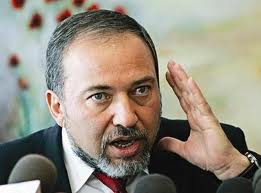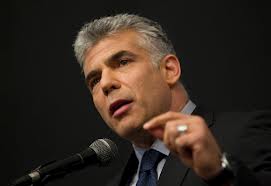 | |
| Israeli Ballot Box |
I have put together a few different thoughts about some aspects of the upcoming elections.
The Israeli Electoral System and the Calls for Reform
As I discussed in my blog on the Israeli elections Israeli Elections last week, Israel is a parliamentary democracy with a 120 seat legislative assembly (the "Knesset"). There are no ridings or electoral districts. Instead, Israel uses a closed-list, proportional representation system. Any party which obtains at least 2% of the popular vote wins seats in the Knesset. The system is therefore very democratic since a wide range of voices are represented. The downside, of course, is that small, extremist parties can make exorbitant demands as the cost of joining and supporting a coaltion government. The largest Israeli parties, historically, Labour and Likud, have been wary of making changes to the system since they have themselves relied on the smaller parties to form majority governments. Historically, this has meant tremendous power for religious parties, which have demanded key ministerial portfolios in exchange for joining coalition governments. Even where there have been "unity" governments made of Knesset members from Labour and Likud, the unity governments have not been prepared to tamper with the system. It seems to me that it would make eminent sense to raise the threshhold from 2% to 5%. This would create a tilt towards the larger parties but it would also provide increased stability while still leaving Israel with a very vibrant democratic system. Only Tsipi Livni's party, "The Movement" and Yair Lapid's party, "There is a Future", seem to be calling, seriously, for this type of change. While Likud has also indicated that it would prefer a system that favours the larger parties (namely themselves), they have shown very little inclination over the course of their mandate to make any actual changes. There is little reason to expect that this coming election will bring about any major change to the political system.
Some Election Quirks
There are some fascinating aspects to an Israeli election that I have grouped under the heading "election quirks."
Surplus Vote Agreements
Israel has a system of "Surplus Vote Agreements." This allows two parties to make an agreement whereby they can share any extra votes they have with one other party. These agreements are declared and published in advance of the election. After the election, the total number of electoral votes are collected and divided into 120. This becomes the required number of votes that a party needs for each Knesset seat. A party with a Surplus vote Agreement with another party can either give or take any extra votes to the party with whom it has made the advance deal. These surplus votes therefore do not simply go back into the general pool of votes to be shared proportionately among the remaining other parties. Almost all of the main parties that are expected to win seats have declared these agreements and announced which party they will pair up with - Likud with Habayit Hayehudi (the Jewish Home), Labour with Yeish Atid (there is a Future), Hatenuah (the Movement) with Meretz - and so on. This does not mean these parties have necessarily agreed to any kind of post-election coalition - only that they have agreed to share "surplus" votes with each other.
Restricted Advertising, Campaigning and Poll Result Circulation
Television advertising in Israeli is highly regulated for political parties during an election campaign. A recent New York Times article looked at this issue in some detail. Parties are limited to seven minutes air time each on each of the three different main national networks. As well, they each get two minutes of airtime for each seat they hold in the Knesset. As a result, the Israeli public finds itself with much less of a bombardment of negative ad campaigns than one might see in a U.S. or Canadian national election. While there are certainly Facebook campaigns, text and email campaigns and slogan-touting billboards all over the country, there is a different feel to the type of campaigning than one might see elsewhere.
Israeli law also prohibits disseminating poll results in the final few days before an election campaign. Further, political parties are barred from campaigning after 7 p.m. the day before the election. Israeli also has in place various campaign financing rules.
While all of these rules represent restrictions on freedom of expression that might not pass constitutional muster in Canada or the U.S., these types of laws are seen as having the effect of levelling the playing field somewhat. It is a welcome change to see a campaign that is not simply fought on the basis of repetitive 30-second negative campaign sound bites.
Election Day - A Statutory Holiday
Schools are all closed on Tuesday January 22, 2013, Election Day, in Israel. As well, many businesses are closed and workers in many types of establishments are paid double time for working that day. In Canada, election laws generally provide for a certain minimum number of consecutive hours that employees must off to vote. While people should certainly be given enough time to vote, it is probably an exaggeration to make the whole day into a national holiday.
However, voter turnout in Israeli elections has averaged between 70 and 75% of registered votes in the past 4 elections. By way of contrast, in Canada, the voter turn out rates since 2000 have been between 60 and 65%, according to Elections Canada. The rate has also been less than 60% in the United States over the past number of elections. So perhaps an Israeli style Election Day holiday would help improve the voter turn-out rate in other countries even if it seems like expensive overkill?
Summary Comments
It does appear fairly clear that Prime Minister Netanyahu will be the Prime Minister and will form the next Israeli government. However, this is not a sign, as some are claiming, that Israeli politics are shifting to the right. Certainly the "Jewish Home" party - "Habayit Hayehudi" is anticipated to pick up a much larger number of seats than its predecessor party had in the previous election. It could get as many as 14 to17 seats. However, many of these seats may well come at the expense of the Likud-Yisrael Beitenu coaltion. Likud and its current partner Yisrael Beitenu held 42 seats following the 2009 election. Some polls are predicting that they will now only win 32-35 seats. These seats might move over to Habayit Hayehudi but that will not necessarily have a significant impact on party policies.
After the last election, the Labour Party held 13 seats, Kadima 28 and Meretz 3 for a total of 44. These left and left-centre seats are likely to be redistributed amoung Labour (15-17), HaTenuah (6-9), Yeish Atid (8-12), Meretz (3-6) and Kadimah (2-4). The total could be 34-41 or it may even be as high as 44. The left and left-centre block may win the same number of seats overall - even though it may be differently distributed. The real issue will be whether some or most of this bloc has the ability to negotiate successfully with Prime Minister Netanyahu and enter a coalition government in exchange for some genuine concessions. This will all depend on the relative strength of this bloc cumulatively as opposed to the strength of the right wing and religious voting blocs.
The various party leaders have been jockeying for negotiating positions by staking out the concessions they will be seeking as terms of joining a coalition. Some, like Labour leader Sheli Yacomovitch, have stated that they will not join a Netanyahu led coalition under any circumstances. Others have expressed a willingness to join. Jewish Home leader Naftali Bennett has stated that he wants to be the third hand on the steering wheel while Prime Minister Netanyahu is driving...Understandably Prime Minister Netanyahu responded by noting that a car being driven by two drivers simultaneously could crash and flip over. Yeish Atid leader Yair Lapid has suggested that he would join a Netanyahu-led coalition but only in exchange for meaningful policy concessions.
Suffice it to say that the weeks and even months following election day in Israel will be as interesting as the election itself as the various parties clamour to put together a stable and endurable coalition government that can lead Israel for the next four years, while maximizing the benefits that the members of the coalition governments will receive for themselves and their followers.










